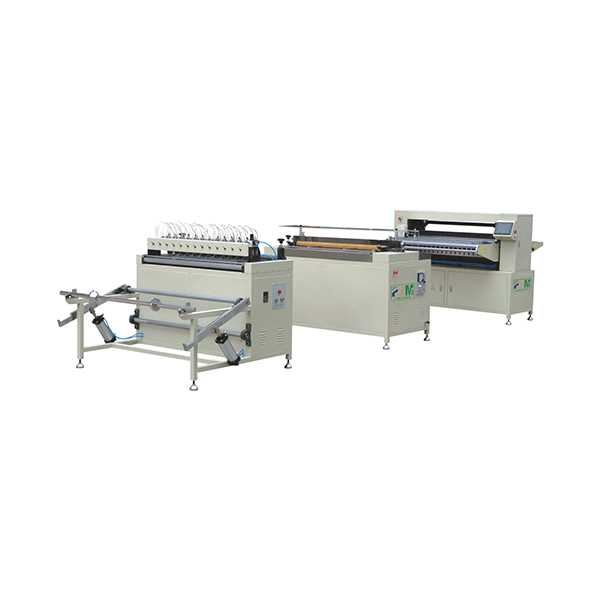Oct . 20, 2024 19:34 Back to list
Exporter of Spin-On Oil Filter Manufacturing Equipment for Efficient Production Lines
Understanding the Spin-on Oil Filter Production Line Exporter
In the automotive industry, oil filters are crucial components that ensure the longevity and efficient functioning of engines. Among various types of oil filters, spin-on oil filters have gained immense popularity due to their convenience and effectiveness. As the global demand for high-quality automotive parts continues to rise, the export of spin-on oil filter production lines has become a significant business segment. This article explores the importance of spin-on oil filters, the production line process, and the role of exporters in this thriving industry.
What is a Spin-On Oil Filter?
A spin-on oil filter is a self-contained unit that combines the filter medium and the outer canister in a single piece, allowing for easy installation and replacement. These filters are typically found in many vehicles, including cars, trucks, and motorcycles. The design of the spin-on filter allows for efficient filtration and is more user-friendly compared to traditional oil filters, which often require complex installations. The ease of replacing a spin-on oil filter has made it a preferred choice for both manufacturers and consumers.
The Production Line for Spin-On Oil Filters
The production process of spin-on oil filters involves several crucial steps, each requiring precision and state-of-the-art technology. Here is a general outline of the production line
1. Material Preparation The primary materials used in spin-on oil filters include steel for the canister and specialized filter media, which may be paper, synthetic, or a combination of various materials. The quality of these materials is paramount to ensure the durability and efficiency of the final product.
2. Canister Formation The steel sheets are shaped into cylindrical canisters through a process called metal stamping or deep drawing. This is where precision machinery plays a vital role, as the dimensions and thickness of the canister directly affect its strength and performance.
3. Assembly of Filter Elements The filter media is cut into the required sizes and assembled with end caps. This assembly is crucial as it impacts the filtration capability. The filter elements must be securely fitted into the canister to prevent any bypass of unfiltered oil.
4. Sealing and Testing After assembly, the canisters are sealed to ensure there is no leakage. Each filter undergoes rigorous testing to confirm its effectiveness under various conditions, including flow rate and pressure. Quality control is essential to comply with industry standards and customer expectations.
spin-on oil filter production line exporter

5. Final Packaging Finally, the filters are packaged appropriately for storage and transport. This step involves ensuring that each unit is adequately protected to prevent damage during shipping.
The Role of Exporters in the Spin-On Oil Filter Market
With the increasing globalization of the automotive industry, exporters of spin-on oil filter production lines play a pivotal role in connecting manufacturers in different regions. They facilitate the trade of advanced production technology and machinery, enabling companies to produce high-quality filters efficiently.
Exporters are involved in several activities
- Market Research They conduct research to understand global market trends, customer preferences, and competitive landscapes, ensuring that manufacturers can stay ahead of the curve.
- Technology Transfer Exporters introduce advanced production techniques and automation solutions, which enhance manufacturing efficiency and product quality.
- Regulatory Compliance They guide manufacturers in adhering to international industry standards and regulations, which is essential for successful market entry.
- Supply Chain Management Effective exporters manage the logistics of shipping production lines, ensuring that machinery arrives on time and in good condition.
Conclusion
The export of spin-on oil filter production lines is a vital area within the global automotive parts industry. As manufacturers strive to meet the growing demand for high-quality oil filters, exporters serve as essential conduits for technology, expertise, and market access. Through their efforts, they contribute to the development of streamlined production processes and the availability of reliable automotive components, which ultimately enhance engine performance and longevity. As the automotive market continues to evolve, the importance of spin-on oil filters and the role of their production line exporters will only grow.
-
Active Carbon Air Filter for Air Purifier – Superior Odor & Allergen Removal
NewsJul.24,2025
-
High-Efficiency Active Carbon Air Filter for Air Purifier | Odor & Allergen Removal
NewsJul.23,2025
-
Active Carbon Air Filter for Air Purifier – High Efficiency Filtration Solution
NewsJul.22,2025
-
Durable Sintered Porous Metal Filter Tube Cup & Machines
NewsJul.22,2025
-
Effective Active Carbon Air Filter for Purifiers | Eliminate Odors
NewsJul.21,2025
-
PLJT-250-25 Full-auto Turntable Clipping Machine | Efficient Automation
NewsJul.20,2025
